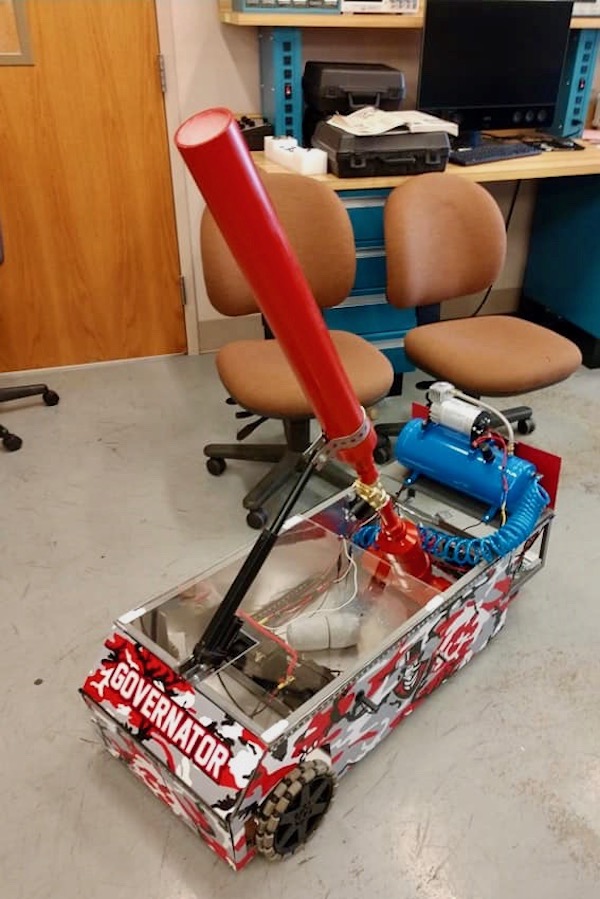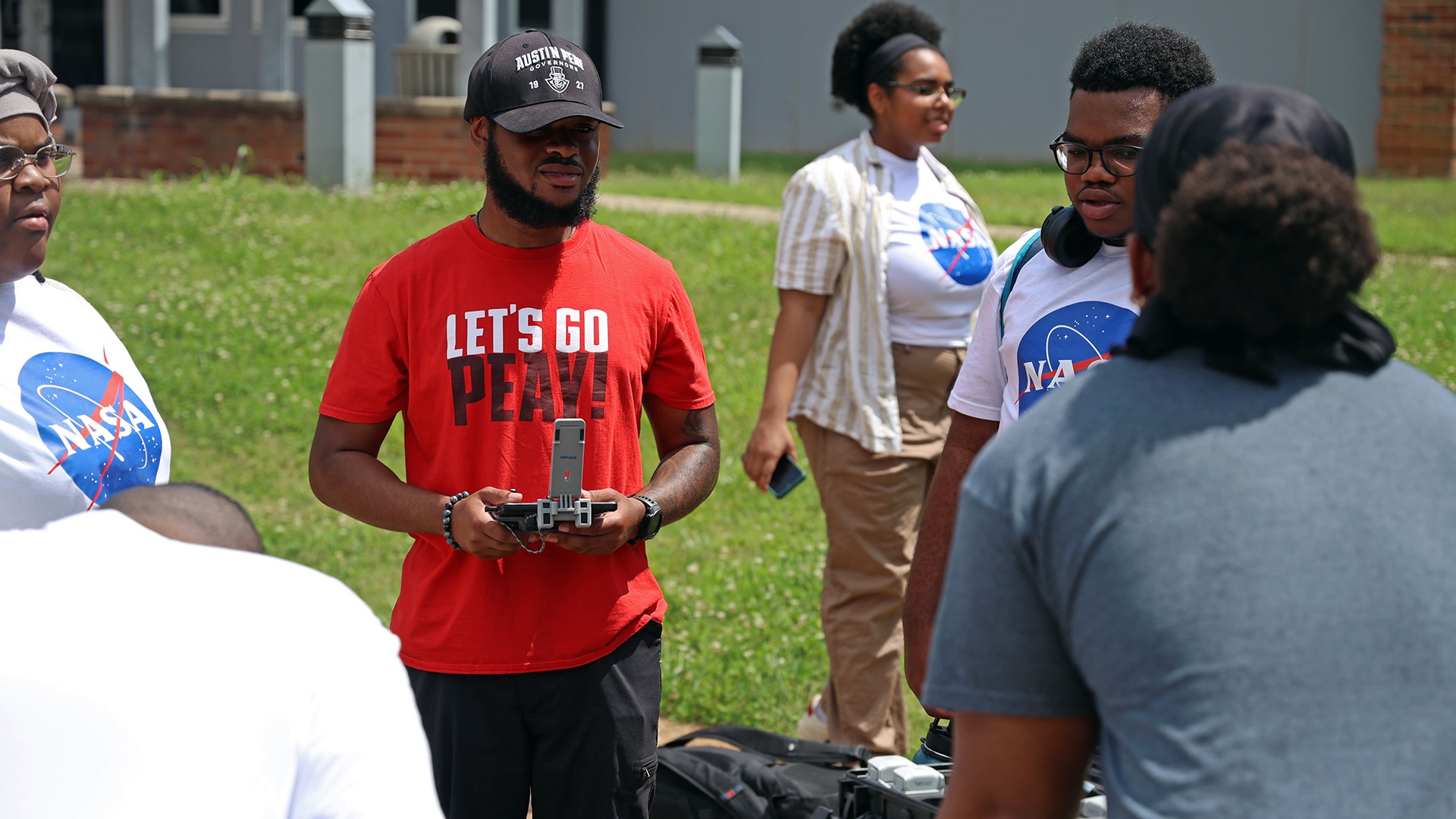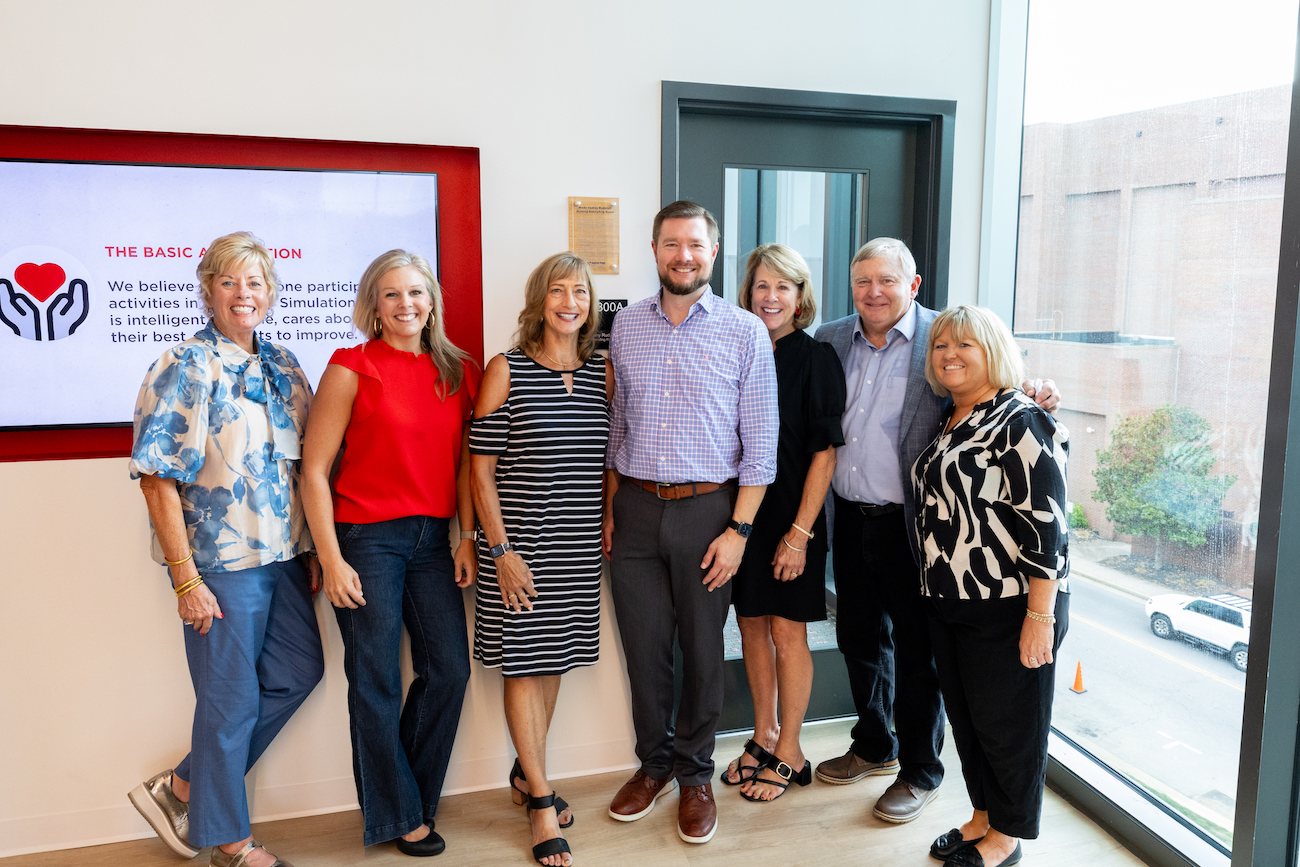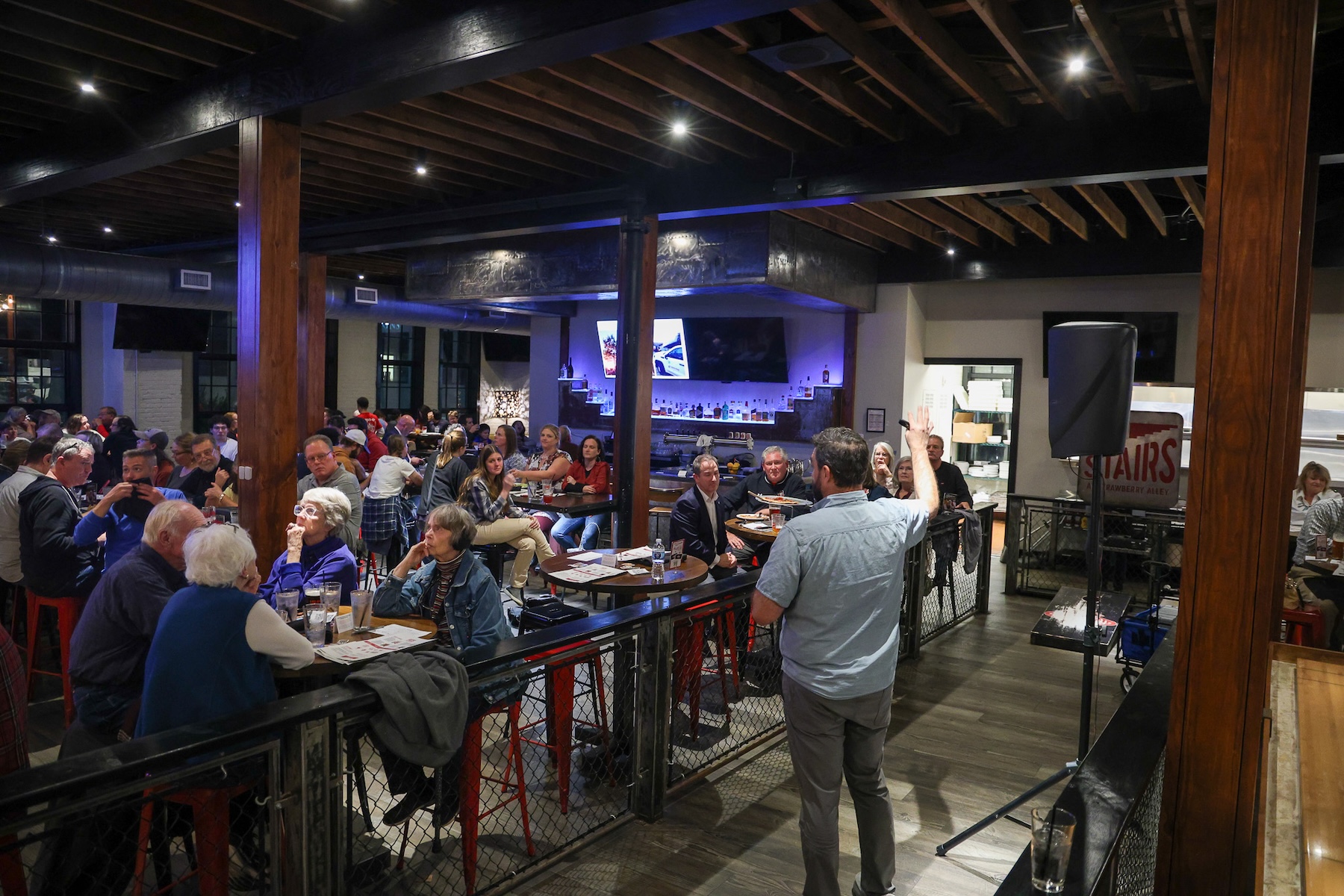Student-built ‘Governator’ set to launch T-shirts at Austin Peay-Queens game

Meet the “Governator” – a student-built, remote-controlled robot that can launch T-shirts more than 200 feet.
You’ll get a chance to see the robot in action when the Governors host Queens at 3 p.m. Saturday, Feb. 4, at the Winfield Dunn Center. And the robot will be a perfect added touch to the day – College of STEM Day – which will celebrate science, technology, engineering and mathematics students, faculty and staff.
Four Austin Peay State University students – Quinten Phillips, Aaron Zacheis, Kyle Somers and Hunter Reese – built the machine in 2019 for their mechatronics capstone project. All are studying engineering technology.
“We wanted to create something that was going to be one of a kind and never had been done before,” Reese said. “We wanted something that would challenge both ourselves and the group as a whole.”
Many capstone projects end up on display at the Army Education Center at Fort Campbell, Somers said. “We wanted our project to be used and not just collect dust.”
Zacheis added: “Our non-cookie-cutter project really breaks the mold for capstone projects within the Engineering Technology Department. We’re all extremely proud of the Governator and what part it will play in many school functions to come.”
Phillips was onboard too.
“When Aaron and Hunter were telling me about their idea for a robot with an air cannon, I felt I had to be a part of it,” he said.
A robot with a cannon arm
The Governator can maneuver into various positions and fire T-shirts, and it’s almost all done remotely.
“The operator can manipulate each of the functions of the robot via buttons and a toggle stick on the remote controller,” Reese said. “The only manual operation required during the operation of the Governator is the reloading of the T-shirts into the cannon barrel.”
The robot is a medium-duty, multi-use mobile platform outfitted with a cannon. The robot can travel 4-7 mph, and its compressor can power the air cannon up to 110 pounds per square inch, Somers said. The cannon can launch T-shirts more than 200 feet.
“It can also remotely adjust firing angle and then fire,” Phillips said.
‘Others to help you along the way’
“The capstone project allows students to get a taste of what engineering work will be like,” Somers said. “Engineers in the manufacturing world spend much of their time creating solutions or improvements to customer wishes.”
Each group member took on specific roles to build the robot. Reese’s role, for example, was electrical engineer and Phillips was the project lead.
“One of the many challenges we faced was figuring out how to go from an idea to a physical functioning robot within a timeline, budget and promise to deliver,” Reese said. “The project taught me that in a real-world scenario, you are not required to have all the answers and that you will have others to help you along the way.”
Austin Peay’s engineering technology program gave the students a solid base of knowledge.
“My schoolwork was extremely helpful to this project,” Phillips said. “From AutoCAD to the frame model to Creo (3D CAD software) for the cannon representation. This project allowed me to prototype, test, adjust and repeat from thought to live.”
News Feed
View All News
The collaborative research project will explore how custom-designed drones can support communities during natural disasters and enhance healthcare delivery, particularly in areas that are difficult to access through traditional means.
Read More
To qualify for this scholarship, recipients must be juniors or seniors with a pre-professional health advisor and maintain a minimum 3.2 GPA. Eligible students must be majoring in chemistry, biology, mathematics, or physics and be involved in a campus or community organization.
Read More
This semester's Science on Tap series will feature faculty presentations on topics ranging from mathematics and environmental conservation to organ donation and the intersection of science and art.
Read More